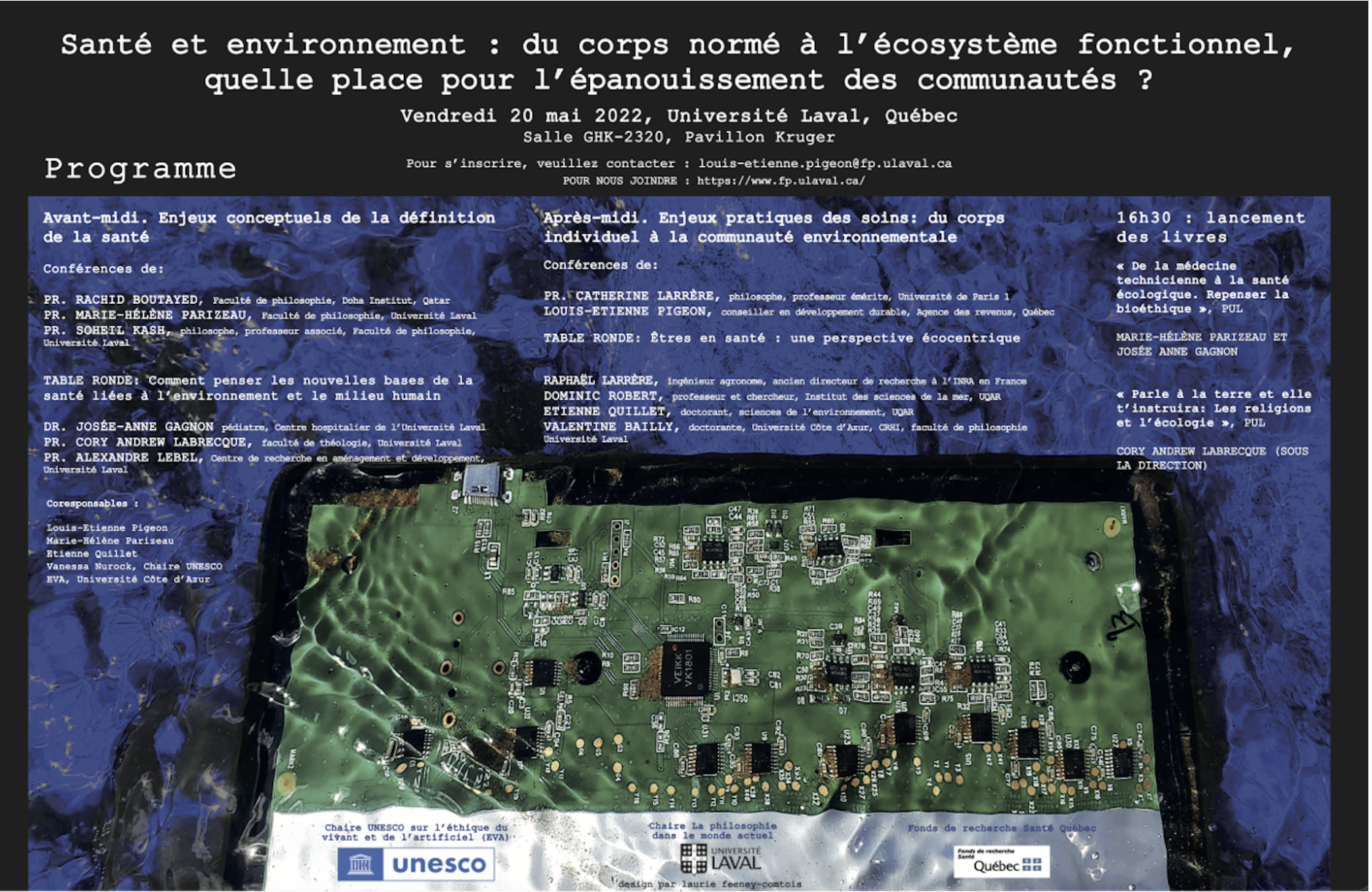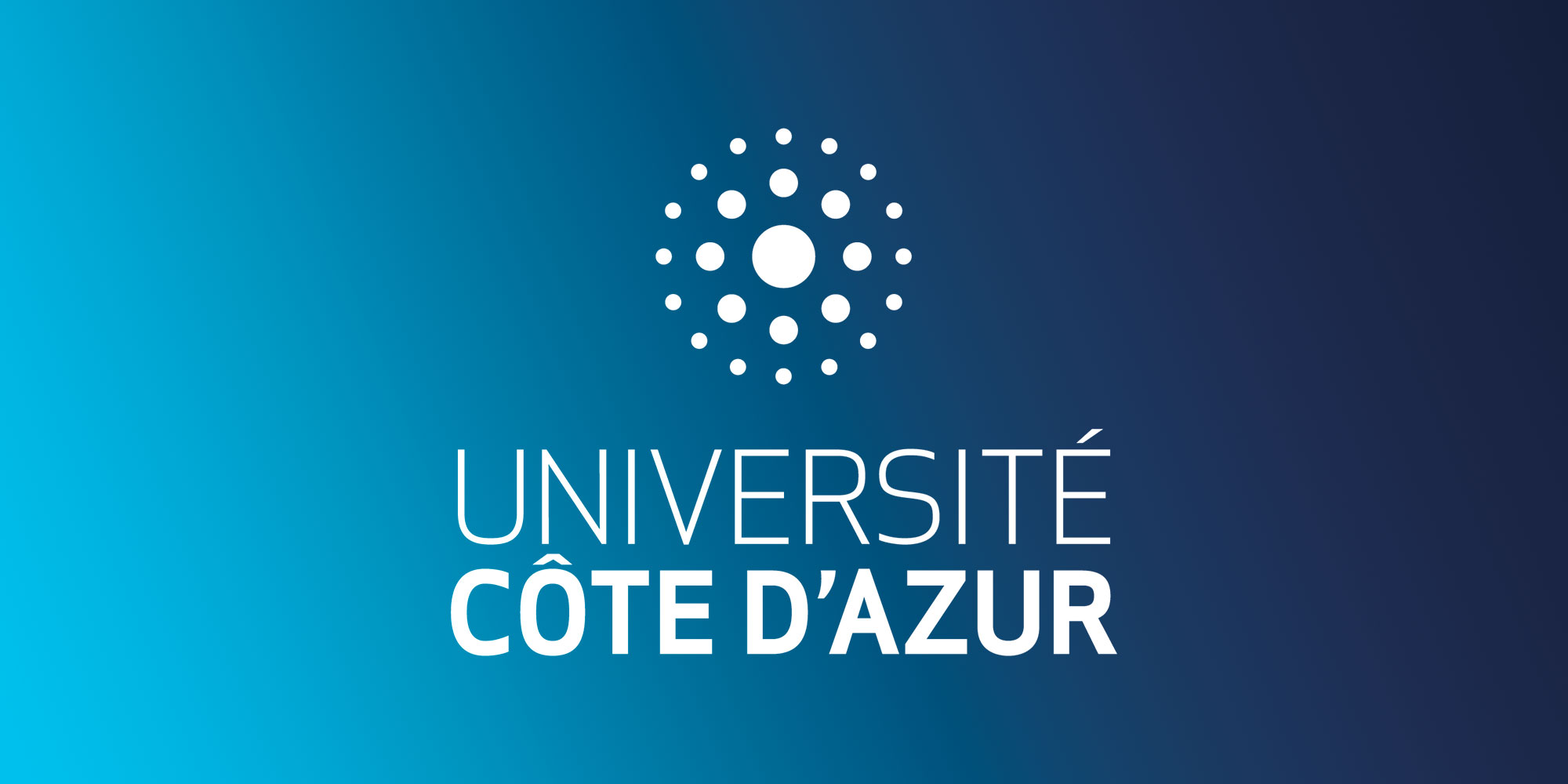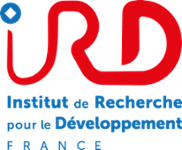Published on February 21, 2024
–
Updated on February 21, 2024
Dates
on the May 20, 2022
Location
Université Laval (Québec City)

French-language event
In the recently emerging literature, "sustainable health" is defined as "physical, psychological and social well-being, maintained throughout life, which evolves in environments where there is access to quality human and material resources, provided with a concern for social and gender equity for all populations, including groups in vulnerable situations, and for future generations" (Alliance santé Québec). The origin of "sustainable health" is often attributed to the WHO, which in 2002 launched a global reflection on "health and sustainable development" in Johannesburg[1]. Since then, numerous preparatory discussions have taken place in the various UN bodies with a view to agreeing and defining the SDGs- Sustainable Development Goals, which were adopted by the UN in 2015.
The definitions of "sustainable health" that have flourished since then open up multiple interpretations of well-being and health status. However, it has to be said that contemporary biomedical practices are struggling to move beyond either the model of the biological, individual and standardized body, or the public health model that addresses groups and communities. What's more, this new concept of "sustainable health", which incorporates the notion of the environment, faces a major theoretical limitation. Indeed, the environments in question are those derived from sustainable development theories, whose aim is to provide resources by virtue of a moral anthropocentrism and a functionalist conception of natural processes (ecosystem services) with a concern for the sustainability of socio-ecological systems. In short, whether health is understood in its traditional sense (as defined by the WHO in 1948[2]) or is now described as "sustainable", the implementation of the means to achieve it comes up against the limits of standardized, objectivist approaches to the individual human biological body and environments, which are often reduced to physico-chemical processes or threats to human health.
The aim of our symposium is to take account of the conceptual limits of the "sustainable health" concept, and to explore the possibility of defining health from other theoretical angles that allow us to think of bodies (human, non-human, but also collective bodies and supra-ecological entities) in their relational, sensitive and self-fulfilling dimensions. Several questions will be addressed: 1) how can we overcome the anthropocentric conception of "sustainable health"? 2) How can we better define collective health? 3) how can we incorporate non-humans into this collective? and 4) how can we think about the dynamics of environments in terms of their fulfillment, beyond functionalist criteria?
[1] WHO, Health and Sustainable Development. Major trends in health, Johannesburg, 2002.
[2] Preamble to the Constitution of the World Health Organization, as adopted by the International Health Conference, New York, June 19-22 1946; signed on July 22 1946 by the representatives of 61 States. 1946 (Official Records of the World Health Organization n°2, p.100).
In the recently emerging literature, "sustainable health" is defined as "physical, psychological and social well-being, maintained throughout life, which evolves in environments where there is access to quality human and material resources, provided with a concern for social and gender equity for all populations, including groups in vulnerable situations, and for future generations" (Alliance santé Québec). The origin of "sustainable health" is often attributed to the WHO, which in 2002 launched a global reflection on "health and sustainable development" in Johannesburg[1]. Since then, numerous preparatory discussions have taken place in the various UN bodies with a view to agreeing and defining the SDGs- Sustainable Development Goals, which were adopted by the UN in 2015.
The definitions of "sustainable health" that have flourished since then open up multiple interpretations of well-being and health status. However, it has to be said that contemporary biomedical practices are struggling to move beyond either the model of the biological, individual and standardized body, or the public health model that addresses groups and communities. What's more, this new concept of "sustainable health", which incorporates the notion of the environment, faces a major theoretical limitation. Indeed, the environments in question are those derived from sustainable development theories, whose aim is to provide resources by virtue of a moral anthropocentrism and a functionalist conception of natural processes (ecosystem services) with a concern for the sustainability of socio-ecological systems. In short, whether health is understood in its traditional sense (as defined by the WHO in 1948[2]) or is now described as "sustainable", the implementation of the means to achieve it comes up against the limits of standardized, objectivist approaches to the individual human biological body and environments, which are often reduced to physico-chemical processes or threats to human health.
The aim of our symposium is to take account of the conceptual limits of the "sustainable health" concept, and to explore the possibility of defining health from other theoretical angles that allow us to think of bodies (human, non-human, but also collective bodies and supra-ecological entities) in their relational, sensitive and self-fulfilling dimensions. Several questions will be addressed: 1) how can we overcome the anthropocentric conception of "sustainable health"? 2) How can we better define collective health? 3) how can we incorporate non-humans into this collective? and 4) how can we think about the dynamics of environments in terms of their fulfillment, beyond functionalist criteria?
[1] WHO, Health and Sustainable Development. Major trends in health, Johannesburg, 2002.
[2] Preamble to the Constitution of the World Health Organization, as adopted by the International Health Conference, New York, June 19-22 1946; signed on July 22 1946 by the representatives of 61 States. 1946 (Official Records of the World Health Organization n°2, p.100).
- PROGRAM (only in french)
-
Matinée: enjeux conceptuels de la définition de la santé
8h: 45 - Mot de bienvenue (Marie-Hélène Parizeau et Louis-Etienne Pigeon, 10m)
9h - Conférences thématiques
9h-9h30 Pr. Rachid Boutayed, Faculté de philosophie, Doha Institut, Qatar: « Sur la maladie sociale à partir de la pensée d’Axel Honneth »
9h30- 10h Pr. Marie-Hélène Parizeau, Faculté de philosophie, Université Laval: « Les définitions de la santé : comment faire le lien avec l’environnement? »
10h - Pause santé (20m)
10h20 – Pr. Soheil Kash, professeur associé, Faculté de philosophie, Université Laval : « Survivre, vivre bien, vivre éternellement »
10h50 - table ronde: thème : comment penser les nouvelles bases de la santé liées à l’environnement et le milieu humain
Pr. Alexandre Lebel, Centre de recherche en aménagement et développement, Université Laval
Dr. Josée Anne Gagnon, pédiatre, Centre Hospitalier de l’Université Laval.
Pr. Cory Andrew Labrecque, faculté de théologie, Université Laval.
12h - Pause repas (1h30)
Après-midi: enjeux pratiques des soins: du corps individuel à la communauté environnementale
13h30 Conférences thématiques
13h: 30 – « Inégalités environnementales et santé durable »: Pr. Catherine Larrère, philosophe, professeur émérite, Université de Paris 1
14h – « L’humain et l’Autre : les écosystèmes comme lieux de l’être ensemble »: Louis-Etienne Pigeon, conseiller en développement durable, Agence des revenus Québec
14h: 30 - Pause santé (20 m)
14h: 50 - Table ronde (1h20) « Êtres en santé : perspective écocentrique »
Raphaël Larrère, ingénieur agronome, ancien directeur de recherche à l’INRA en France,
Pr. Dominic Robert, Institut des sciences de la mer, UQAR
Valentine Bailly, doctorante philosophie, cotutelle Université Côte d’Azur et Université Laval
Etienne Quillet, doctorant, sciences de l’environnement, UQAR,
16h10 : clôture
16h30 : Lancement des livres :
Marie-Hélène Parizeau et Josée Anne Gagnon, De la médecine technicienne à la santé écologique. Repenser la bioéthique , PUL,
Et
Cory Andrew Labrecque (sous la direction), Parle à la terre et elle t’instruira. Les religions et l’écologie », PUL. - Organizers
-
Louis-Etienne Pigeon, Agence des revenus Québec
Marie-Hélène Parizeau, Faculté de philosophie, Université Laval, Québec
Etienne Quillet, doctorant, sciences de l’environnement, UQAR
Vanessa Nurock, UNESCO EVA Chair, Université Côte d’Azur
- Partnerships
-
UNESCO EVA Chair
IDEX UCAjedi (Université Côte d’Azur)
Chaire La philosophie dans le monde (Université Laval)
Fonds de recherche Santé Québec

















